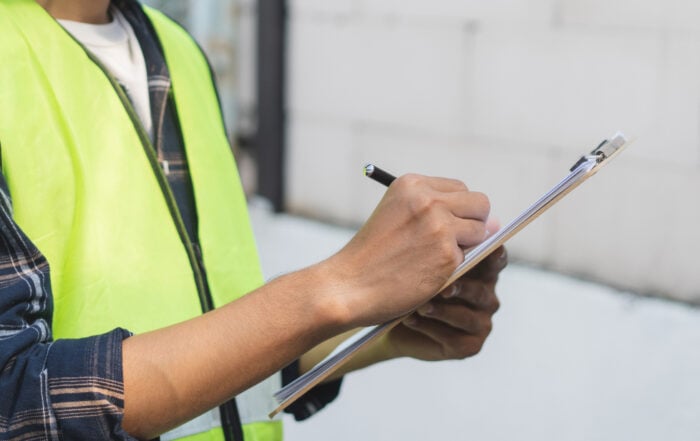Water is essential for our survival, as it sustains and nourishes us throughout our lives. However, it’s no secret that not all water is safe for consumption, especially as our environment and climate change. From lead contamination to bacteria, pollutants and other harmful materials, water quality is no longer a guarantee. That’s why water quality testing matters. We’ll look at the different types of contaminants in water sources, the hidden dangers in our tap water, the benefits of professional water testing versus DIY testing, and tips for interpreting and improving water quality at home.
Types of Contaminants in Water
Water contamination comes from many different sources including multiple man-made and natural contaminants. These include, but not limited to, bacteria, protozoa, viruses, metals, pesticides, and physical materials. The most prevalent contaminants you should be aware of include lead, pesticides, nitrates and nitrites, and bacteria.
Some of these contaminants can have severe health consequences, especially for children and the elderly. For example, lead poisoning can cause developmental delays and cognitive issues, while bacteria like E.coli can cause serious illnesses such as diarrhea and vomiting. It is crucial to regularly test your water for these contaminants to ensure the safety of your household.
The Hidden Dangers in Our Tap Water
Studies have shown that tap water contains high levels of pollutants that pose risks to human health. Lead and copper contamination in water can lead to developmental damage, anemia, and neurological problems. Pesticides, nitrates and bacteria, if ingested, can cause gastrointestinal and other health problems. Protect yourself and those you love by testing your water for contaminants.
The Cost of Ignoring Water Quality
The health risks that come from consuming contaminated water have adverse costs. Hospital bills, medication costs, lost work days, and lost productivity can quickly add up and result in significant financial costs. To avoid these expenses, it’s best to invest in a home water test professionally. DIY tests may seem cheaper, but they often produce inaccurate or inconclusive results, which can lead to further health risks and costs in the long run.
DIY Testing vs Professional Testing
A DIY test kit to test your water for contaminants may seem tempting due to its affordability. However, without education, interpretation, or proper equipment, DIY tests can be inaccurate. On the other hand, professional water testing labs use accredited methods that offer the most accurate results. They also provide detailed analysis of contaminants found in your water source. This information is beneficial in the development of an effective plan to improve water quality.
Benefits of Hiring a Professional
Professional water testing provides the most comprehensive and accurate results that DIY water testing kits cannot match. They equip you with clear information on contaminants and levels of contamination. Knowledge of the risks posed by specific contaminants in your water source can help you take appropriate action to prevent damage to your health and home plumbing. Professionals can suggest remediation methods, appropriate filters, and treatment options to help mitigate the harm caused by contaminants in water.
Interpreting Test Results
Test results don’t mean much if you don’t know how to interpret them. A professional water test report will often have an explanation of the detected contaminants. Ensure that you understand the meaning of the test results, whether they are within the acceptable range or not. Your provider should give you clear recommendations for taking action to improve your water quality based on the results. Don’t hesitate to ask for clarification if you have any doubts about the results.
Tips for Improving Home Water Quality
If your test results show that your water contains contaminants, don’t worry. Solutions exist to make your water source safe for consumption. One of the most effective ways to improve water quality is installing water treatment systems. Corrective measures such as filtration, softening, conditioning, and disinfection are preferred methods in treating water contamination. Another solution is regularly flushing your pipes frequently to clear accumulation of sediment and other contaminants. You can also consider investing in a water filter for added protection.
Regular Water Quality Testing
Regular water quality testing is crucial for maintaining a healthy and safe household. It helps identify any dangerous and potentially harmful contaminants in your water supply before they can cause significant health problems. It’s not uncommon for water quality to change over time as contaminants can be introduced in your water supply through various factors, such as environmental changes, erosion, or industrial pollution. Therefore, frequent water testing ensures that any change in water quality is detected swiftly, enabling immediate action to rectify the situation. This proactive approach can protect the health of your household and provide peace of mind that the water you are consuming is safe.
Fun Fact! How Much Water We Waste Daily
On average, a person uses about 80-100 gallons of water daily. However, we rarely consider how much water we waste each day. Homes lose approximately 10% of their daily supply to leaks. Most of this water is lost due to small, fixable problems like faucet leaks, freely flowing toilet flush valves, and wasted shower water. By fixing these issues, we can significantly reduce our water wastage and save money on utility bills and help the planet!
Every Drop Counts
If you’re concerned about the safety of your water source, it’s time to take action and perform water quality testing. The value of understanding the quality of your water can’t be overstated. Knowing the level of contaminants in your water can save your finances, as well as your health. By hiring professionals, you can ensure that your water is cleansed and free of common pollutants. Knowing how to interpret the test results can help you make informed decisions about what steps to take to improve your water quality. Remember that you have the power to control the quality of your water, so invest in your health and home by testing the water quality.
Erie Inspection Service Understands Water Quality Testing
Don’t compromise when it comes to the safety and quality of your water. Erie Inspection Service has a team of professionals ready to provide you with the most accurate water quality testing, ensuring that your water is free from harmful contaminants. Our comprehensive testing will equip you with the knowledge you need to make informed decisions about your water quality. Take the first step towards a safer home and healthier life today by contacting us on our website or by calling (800) 434-6022 for your professional water quality testing.




